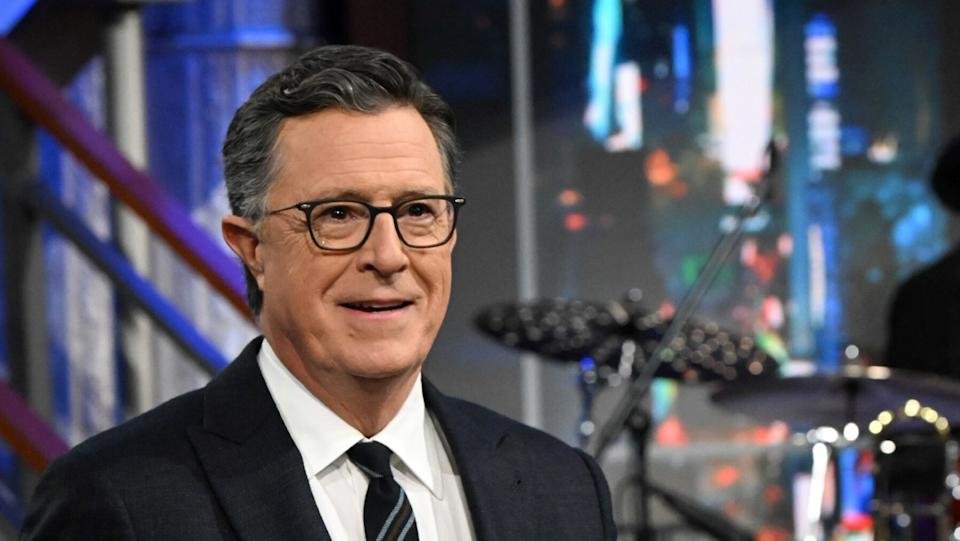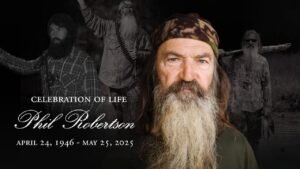Stephen Colbert: The Intersection of Faith and Comedy

Introduction to Stephen Colbert
Stephen Colbert is a prominent figure in American entertainment, widely recognized as a late-night talk show host, comedian, and political satirist. His unique style of humor blends intelligence with wit, positioning him as a significant voice in contemporary comedy. Colbert first garnered attention through his role on “The Daily Show” as a correspondent, where he showcased his ability to blend comedic elements with critical commentary on political issues. This platform paved the way for his own show, “The Colbert Report,” which aired from 2005 to 2014. Here, Colbert assumed the persona of a conservative pundit, ironically embracing caricatured traits of right-wing commentators while cleverly critiquing them.
Within the context of “The Colbert Report,” Colbert not only achieved commercial success but also helped reshape political satire in the United States. The show’s unique format allowed him to engage with serious topics while entertaining audiences, masterfully combining humor with insight. His ability to resonate with viewers is reflected in the show’s multiple Emmy awards and its influence on the landscape of late-night television.
Following the end of “The Colbert Report,” he transitioned to “The Late Show with Stephen Colbert,” where he took on a broader role as a host capable of addressing a wide range of topics. This new platform has allowed him to incorporate elements of guest interviews, musical performances, and segments focused on current affairs, all while maintaining his signature comedic style. Throughout his career, Colbert’s background as a Catholic has also played a significant role in shaping his comedic perspective, often integrating discussions about faith and moral values into his routines. His work continues to spark conversations about the intersection of faith and comedy, illustrating the profound impact a comedian can have on both dialogue and culture.
Dua Lipa’s Question: A Spark for Discussion
During a notable episode of ‘The Late Show with Stephen Colbert,’ pop sensation Dua Lipa posed a thought-provoking question that resonated with audiences and sparked significant discussion about the relationship between faith and comedy. The moment provided a unique intersection of entertainment and introspection, capturing the essence of Colbert’s approach to humor and his personal belief system.
Dua Lipa, known for her candid and engaging conversation style, asked Colbert how his faith influences his comedic work. This inquiry was not just a casual late-night talk show moment; it was a profound reflection on how personal beliefs shape artistic expression. Colbert, who has often infused his performances with his religious convictions, responded with a thoughtful explanation that highlighted the nuances of blending faith and humor. He articulated that comedy, at its core, allows for exploration, questioning, and connecting with others, often through the lens of one’s spiritual journey. This dynamic interplay offered a glimpse into how comedy can serve as a platform for discussing complex themes, including ethics, morality, and human experience without being overly didactic or cumbersome.
The exchange went beyond mere entertainment; it illustrated the importance of discussing faith openly in contemporary media, where such dialogues can be rare. Colbert’s ability to navigate these topics through humor invites audiences to reflect on their beliefs while engaging with the whimsical nature of comedy. This moment stands as a testament to the power of pop culture figures like Colbert and Dua Lipa in fostering discussions that encapsulate the diverse tapestry of human experience, proving that faith and humor are not mutually exclusive but can coexist fluidly within the realm of public discourse.
Colbert’s Personal Faith Background
Stephen Colbert was born into a deeply religious family, growing up in a devout Catholic household that significantly shaped his identity and worldview. His father, James Colbert, was a Catholic cleric, and his mother, Lorna, served as a faithful churchgoer, creating an environment where spirituality was interwoven with daily life. This upbringing instilled in him the fundamental principles of the Catholic faith, highlighting the importance of compassion, service, and community engagement.
Colbert attended a Jesuit high school, where he was introduced to the principles of Ignatian spirituality. This educational experience further deepened his connection to the faith, emphasizing a reflective approach to life and critical thinking about moral dilemmas. The teachings of his family and school fostered a sense of purpose and responsibility in him, reinforcing the idea that one’s actions should align with their beliefs. These formative experiences have impacted his decisions throughout his career and life.
Faith plays a crucial role in Colbert’s professional endeavors, often serving as a guiding force behind his comedy. He integrates themes of morality, ethics, and spirituality into his performances, often examining the intersection of faith and humor. This unique perspective enables him to navigate complex topics with wit and sensitivity, allowing audiences to resonate with his insights. His comedy often reflects a quest for understanding, exploring how faith can coexist with challenges, doubts, and the human experience. Moreover, through his platform, he continues to engage in conversations about faith, demonstrating its relevance in contemporary society.
Ultimately, Colbert’s religious background not only shapes his comedic approach but also highlights the struggles and triumphs individuals face while maintaining their faith in a modern context. This deep-rooted belief system contributes to the authenticity and relatability in his work, making him a distinctive voice in the realm of entertainment.
Comedy as a Reflection of Faith
Stephen Colbert’s comedy is often seen as a unique conduit through which he explores the intricate relationship between faith and humor. His Catholic upbringing has significantly influenced his worldview, imbuing his comedic style with depth and moral reflection. Colbert frequently integrates faith-driven themes into his routines, allowing him to tackle profound ethical and moral issues while maintaining an air of levity. This blend of spirituality and comedy resonates with audiences, making complex topics more accessible.
One notable example can be found in Colbert’s approach to current events. He often uses satire to reflect his moral stance, illuminating societal and political dilemmas through a faith-based lens. His humor serves not just to entertain but to provoke thought about the responsibilities we hold as individuals within society. For instance, he has addressed controversial subjects such as social justice, compassion, and the importance of empathy—concepts that are deeply rooted in Christian teachings. The way he weaves these themes into his comedic narratives showcases his belief that laughter can be a powerful tool for social commentary.
Furthermore, Colbert has exhibited a willingness to engage with existential questions through his comedic lens. By sharing his personal faith journey on various platforms, including his late-night show, he invites audiences to reflect on their own beliefs and moral choices. This approach demystifies religious faith, illustrating how it can coexist with the secular world. Ultimately, Stephen Colbert’s comedy underscores the idea that faith and humor are not mutually exclusive; rather, they can enrich one another, creating a space for dialogue around human experience, ethics, and spirituality. This synthesis not only entertains but encourages deeper contemplation of life’s most pressing issues.
Handling Controversy Through Humor
Stephen Colbert’s comedic style is often characterized by his ability to tackle sensitive subjects, particularly those intertwined with faith and politics. His approach utilizes humor as a mechanism to engage in difficult conversations, allowing audiences to reflect on contentious issues without feeling overtly confrontational. This method serves to humanize complex topics, making them more accessible and relatable to viewers. For instance, when discussing the polarizing nature of political discourse, Colbert often employs satire to highlight the absurdities present within the debates, breaking down walls of tension and encouraging constructive dialogue.
One notable instance of Colbert’s deftness in handling controversy occurred during a segment addressing the dichotomy between personal beliefs and public policy. By integrating humor, he successfully navigated the treacherous waters of religious viewpoints influencing governmental decisions. Through his witty commentary, he encouraged viewers to consider the implications of faith intersecting with public life, fostering a space for reflection rather than discord. This illustrates how Colbert harnesses the power of comedy not just for entertainment, but as a tool for prompting critical thought about societal norms and contentious issues.
Moreover, Colbert’s ability to adopt different personas—such as his famous satirical character during his tenure on “The Colbert Report”—allowed him to explore faith-based and political topics with levity, while simultaneously critiquing the absurdities of the systems they represent. These characters pushed the boundaries of traditional discourse, demonstrating that humor can serve as a bridge, rather than a barrier, in discussing contentious matters. By inviting laughter, Colbert effectively invites open-mindedness, fostering an environment where faith-infused conversations can occur with less friction and more understanding, ultimately revealing the significance of comedy in addressing controversy.
The Role of Authenticity in Colbert’s Comedy
Stephen Colbert’s approach to comedy is deeply rooted in authenticity, a quality that resonates profoundly with his audience. Rather than adhering strictly to traditional comedic formulas, Colbert interweaves his faith and personal beliefs into his routines, creating a unique blend of humor that is both relatable and thought-provoking. This authenticity allows him to connect with viewers on a more personal level, as his candid reflections on spirituality provide a refreshing perspective in the often secular world of entertainment.
Colbert’s ability to laugh at himself and his beliefs demonstrates a level of vulnerability that many find appealing. He is not afraid to explore complex topics such as morality, ethics, and faith through his comedic lens. By doing so, he acts as a bridge, inviting audiences to contemplate their perspectives on spirituality while simultaneously entertaining them. This blend of humor and honesty establishes a rapport with viewers who may share similar experiences or questions regarding faith.
Moreover, Colbert’s comedy often challenges the prevailing narratives around religion in popular culture. By integrating his beliefs into his performances authentically, he paves the way for discussions that might otherwise be overlooked or dismissed. His segments often reveal the joys and struggles of faith, enabling audiences to see the human side of religious experiences. This fostered erudition enhances the relatability of his humor, making it accessible to individuals from various walks of life, regardless of their religious backgrounds.
In the realm of comedy, where exaggeration and insincerity often prevail, Colbert’s commitment to authenticity stands out. His ability to merge faith with a humorous twist not only entertains but also invites reflection, making his work significant in today’s cultural landscape. This authentic intertwining of spirituality and comedy presents a powerful narrative that encourages deeper engagement with both genres.
Audience Reactions: Invoking Faith and Humor
Stephen Colbert’s unique blend of faith and comedy has garnered a diverse array of audience reactions, provoking thought and dialogue about spirituality within the realm of entertainment. His comedic style often incorporates elements of his religious beliefs, leading viewers to experience a mix of laughter, reflection, and sometimes discomfort. This intersection resonates particularly with those who appreciate how he navigates serious themes through humor, making discussions of belief more accessible and engaging.
Social media platforms have become a cornerstone for audience feedback regarding Colbert’s performances. Tweets, Facebook posts, and Instagram comments frequently express admiration for his ability to weave faith into his routines. Many fans appreciate how he manages to articulate their own thoughts and struggles concerning faith in a manner that is relatable and often humorous. Conversely, some viewers express concern or disappointment, particularly when jokes tread on sensitive topics within their religious beliefs. This divergence in audience response underscores the complexity of faith as a subject matter in comedy.
Furthermore, the impact of Colbert’s humor extends beyond individual reactions. His approach often sparks broader conversations about the role of spirituality in entertainment. Discussions arise among viewers regarding the fine line between comedy and respect for faith traditions. In many cases, Colbert’s insights encourage deeper introspection among his audience, prompting them to confront their beliefs while appreciating the comedic narrative. This dynamic interplay has led to a heightened awareness of how faith can inform humor and vice versa, ultimately fostering an environment where difficult conversations about spirituality are more openly undertaken.
As audiences navigate their reactions to Colbert’s incorporation of faith into humor, it becomes evident that his impact reaches far beyond mere entertainment, as he continues to challenge societal norms surrounding comedy and spiritual discourse.
Comparisons with Other Comedians
Stephen Colbert’s distinct brand of comedy stands out in the entertainment industry, particularly in its unique blend of faith and humor. Several other comedians have similarly explored religious themes, yet each has approached this rich subject matter through their individual lenses and styles. Comedians such as Jon Stewart and Larry David, for instance, provide valuable comparisons that highlight the versatility of religious satire in contemporary comedy.
Jon Stewart, famous for his tenure on “The Daily Show,” often approached topics of faith through a political lens. Stewart, who was raised in a Jewish household, employed sarcasm and wit to dissect religious topics, often emphasizing the absurdities present in religious practices. His work resonates with audiences who appreciate satire that challenges the intersection of faith and politics, much like Colbert’s approach to faith intertwined with societal commentary.
On the other hand, Larry David, creator of “Curb Your Enthusiasm,” portrays a more personal and often neurotic relationship with Judaism. His humor finds a home in the everyday dilemmas faced by individuals navigating their beliefs in a secular world. David’s ability to weave comedic narratives around Jewish identity reflects a different facet of faith-based comedy, one that emphasizes self-deprecation and personal experience rather than overarching societal critiques, providing a contrast to Colbert’s more direct engagement with faith in a public sphere.
Moreover, figures such as Gina Brillon and Jim Gaffigan infuse their performances with elements of spirituality and family-oriented comedic narratives. Brillon navigates cultural nuances while Gaffigan employs his Catholic upbringing as fodder for humor. These comedians showcase that while faith can be a profound source for comedy, the style and context can vary significantly. This diversity enriches the comedy landscape, proving that the intersection of faith and humor can be as varied as the comedians themselves, ultimately allowing for a broader conversation about belief and identity in a complex society.
Conclusion: The Evolving Relationship of Comedy and Faith
Stephen Colbert exemplifies the intricate relationship between faith and comedy, demonstrating how personal beliefs can influence a comedic perspective. Throughout his career, Colbert has not only entertained audiences but has also provoked thought on deeper issues of morality, ethics, and spirituality. His unique stance as a comedian who openly incorporates his Catholic background into his work invites viewers to engage with complex themes while enjoying humor.
As Colbert navigates the fine line between comedy and faith, he ultimately showcases the potential for laughter to serve as a lens through which profound subjects can be examined. This intersection is particularly salient in today’s cultural climate, where humor often becomes a vehicle for social commentary. Through his late-night shows, Colbert has successfully crafted segments that reflect on current events, using satire to highlight the absurdities of societal norms and religious contradictions. This approach not only fosters a dialogue about faith but also encourages a wider acceptance of diverse beliefs within the comedic landscape.
Furthermore, the implications of Colbert’s intertwining of faith and comedy extend to the future of the genre. By presenting spirituality in a relatable context, he inspires other comedians to explore similar themes in their work. As audiences continue to evolve, the expectation for authenticity and depth in comedic performance grows, making the blending of humor with faith increasingly relevant. Ultimately, Colbert’s career serves as a testament to the capacity for comedy to transcend mere entertainment, facilitating meaningful conversations about the human experience and the role of spiritual beliefs in shaping one’s worldview.













Leave a Reply
You must be logged in to post a comment.